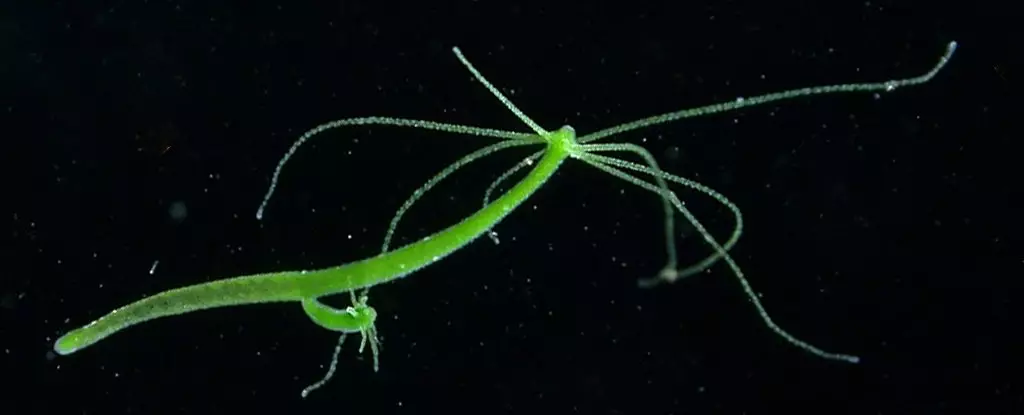Hunger is a fundamental drive that dictates the decisions and behaviors of all living beings. The need for sustenance is ingrained in the very essence of life itself, compelling organisms to seek out food sources in order to survive and thrive. While the mechanisms behind hunger are well understood in most animals, the case of brainless creatures presents an intriguing puzzle for scientists to unravel.
University of Kiel zoologist Christoph Giez and his team delved into the realm of brainless creatures by studying hydra, jellyfish relatives found in freshwater. These fascinating creatures possess a remarkably intricate network of neurons that play a crucial role in regulating their appetite. Despite lacking a centralized brain, hydra have a sophisticated nervous system that enables them to sense when they are hungry and when they are full.
The researchers discovered that hydra possess two distinct networks of neurons – one akin to a central nervous system and the other resembling a peripheral nervous system. The former is responsible for digestion, while the latter is involved in signaling feelings of fullness. This unique arrangement allows hydra to maintain a delicate balance between hunger and satiety, even without a conventional brain.
Through a series of experiments, Giez and his team observed how hydra respond to changes in their internal metabolic state. Following a meal, the animals exhibited reduced attraction to light stimuli and a decrease in natural movement patterns. This behavioral shift indicates that hydra adjust their actions based on their sense of fullness, demonstrating a level of behavioral sophistication previously unrecognized in brainless organisms.
By selectively removing the outer network of neurons in hydra, the researchers were able to elucidate the specific functions of different neuronal populations. The absence of these neurons led to changes in the animals’ orientation towards light and increased tendencies to open their mouths for food. This suggests that different sets of neurons in hydra are responsible for distinct behavioral responses related to appetite regulation.
The findings from this study shed light on the early origins of appetite control mechanisms in animals. The separate yet interconnected nervous systems in hydra hint at the evolutionary processes that have shaped the regulation of hunger across different species. While the exact mechanisms of communication between these neural networks remain to be fully understood, the implications of this research extend far beyond the realm of brainless creatures.
The study of hydra provides valuable insights into the intricate ways in which even the simplest of organisms can regulate their appetites. By unraveling the complexities of hunger in brainless creatures, scientists are not only expanding our understanding of basic biological processes but also gaining valuable knowledge about the evolution of appetite control mechanisms in all living beings.


Leave a Reply